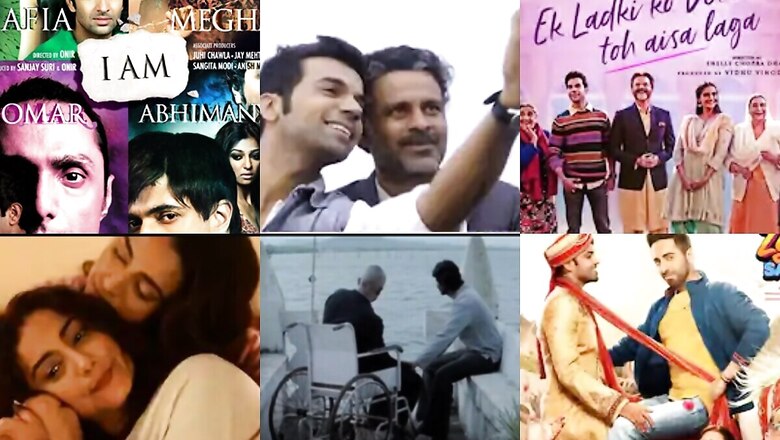
views
There is no credit snatching from an Ayushmann Khurrana or a Sonam Kapoor for playing unconventional LGBTQI+ characters in films such as Subh Mangal Zyada Savdhan or Ek Ladki Ko Dekha Toh Aisa Laga. What they have done is significant in terms of the natural progression of the themes that need to be discussed in mainstream Hindi films.
However, these films also saw a divided opinion around the debate around cis-het actors playing marginalized characters. As much as people considered this as a necessary step towards inclusion, unavoidable arguments were raised that the gaze we have on queer characters or stories is highly modelled upon the heteronormative romance that has been present in Bollywood and why queer actors are not essaying queer roles.
While Bollywood might have taken baby steps with films like Fire that told the story of gay women, what remains to be seen is when people from the community will tell their own stories. Something that could bring a change to the sensibility of perception.
That brings us to another vital question: what steps the industry is actually taking to ensure this? What is being done about it?
We spoke to some queer artists to understand the situation.
Though the mainstream portrayal seems to have changed from using queer characters as a subject of ridicule, filmmaker Onir feels that there has been no proper representation since section 377 was decriminalised. He pointed out that the problem lies in the lack of empowerment of the third gender and the industry needs to work in a way where more people from the community are comfortable to be out and proud.
“No man or woman should pretend to be transgender and real transgender people should act. But for that, they have to learn the craft. At the end of the day, acting is a craft and unless a transgender person is trained in that it won’t happen. So the film industry needs to make space where the trans community can train and then empower”, said Onir whose 2005 film My Brother Nikhil is considered to be one of the pioneers in Bollywood to deal with homosexual relationships.
Taking the argument forward, writer-director Faraz Arif Ansari says that their upcoming film Sheer Qorma has actors like Divya Dutta and Swara Bhasker playing the lead because of the legacy of their work.
However, they reveal that 95% of their crew members were women, out of which 70% of them identify as queer, including Ansari who identifies as a non-binary gay person.
“I believe all trans men are men and all trans women are women. So why are we only looking at casting trans people for trans roles? They should also play the characters written for a woman or for a man because that will be the largest spectrum of inclusion. I actually had a woman character played by a trans woman in Sheer Qorma”, adds Faraz whose previous film Sisak was a queer love story.
“The biggest problem with the stories is that our stories are been told from a heteronormative perspective. The way we look at the world is different. Our Industry for the longest time, is not saying what needs to be told but what is popular”, says Onir, who also feels that the film industry needs to start looking out for the already present queer artists so that other people find the courage to come out.
On the industry’s role in sharing the platform, Faraz Ansari questions what constitutes Bollywood. While it is made of giant production houses, it also has queer filmmakers like Onir, Apurva Asrani or Gazal Dhaliwal and actors like Divya Dutta or Shabana Azmi within whom the community has found allies.
“I would further push the term Bollywood and say Indian film industry, which includes the South, North, Northeast, and Northwest, and the onus and the responsibility to have the right story that is honest is on all of us and I certainly feel when a queer film is being made for mainstream consumption ideally it should be helmed by a queer person”, adds Faraz.
On the other hand, regional cinema seems to complement Ansari’s opinions. While in the south we have Dr Jijo Kuriakose, an openly gay man who has garnered some fame for Njan Sanjo, that documents the life of a trans man in Kochi, in the east we have director Tathagata Ghosh’s Miss Man, a film about a young man who wants to become a woman, which sees actors from queer communities in queer roles.
While both Onir and Faraz suggest different steps that the film fraternity can take, they both have a similar question.
“How many actors do you know who is open and identify as queer in Bollywood today?”














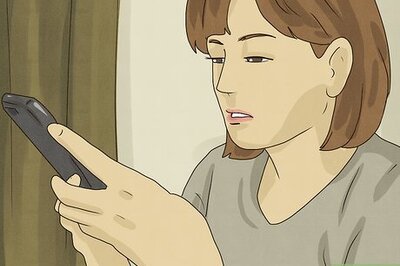
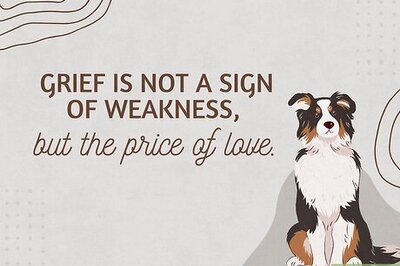
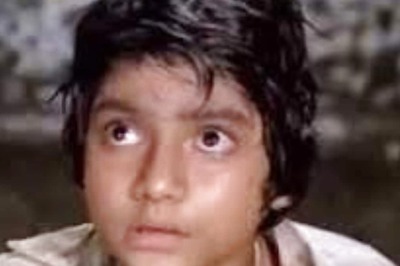
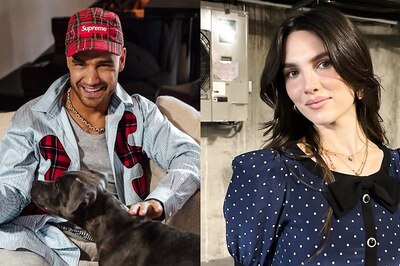
Comments
0 comment